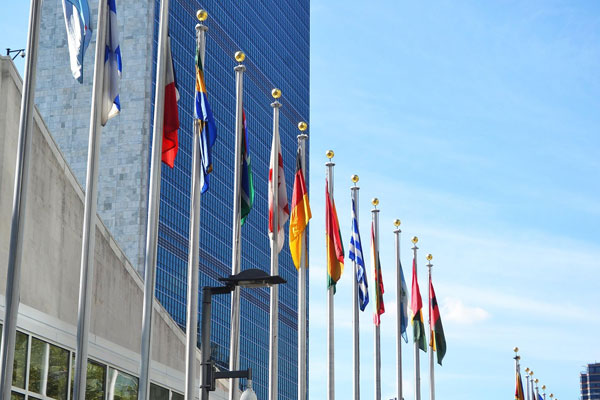UN holds Guatemala accountable in forced child motherhood

[United Nations Office| Photo Credit to Pixabay]
On June 5th, the United Nations Human Rights Committee (UNHRC) issued a ruling that held the State of Guatemala responsible for violating human rights, in a landmark case involving a young survivor of sexual violence.
The ruling was based on the case of a girl named Fátima.
Fátima survived sexual violence by her teacher and was forced to carry a pregnancy to term resulting from rape.
The decision was supported by several human rights advocacy groups, with one being the “Son Niñas, No Madres” (They Are Girls, Not Mothers) movement, which is a Latin American initiative advocating for the rights of girls facing forced motherhood.
In 2018, this movement initiated litigation that claimed that no girl should be forced into unwanted pregnancy and motherhood.
Furthermore, other organizations also joined the call for justice.
Organizations founded by Planned Parenthood Global, Amnesty International, Grupo de Información en Reproducción Elegida (GIRE) and the Latin American Consortium Against Unsafe Abortion (CLACAI) share the goal of reporting on the serious consequences of sexual abuse and forced pregnancy upon girls.
Marianny Sánchez, Communications Director for Latin America at Planned Parenthood Global, one of the movement’s founding organizations, stated that “each ruling is not only a vindication for the girls who survived these violences, and who waited years for justice… but also a beacon of hope for thousands of others.”
Fátima was a girl from a low socioeconomic background in Guatemala.
Between 2009 and 2010, when she was 13 years old, she was raped by a teacher who was an official of the agency responsible for protecting children.
She was forced to continue with the pregnancy that resulted from the abuse, and Guatemala’s legal system did not prosecute her aggressor.
To make matters worse, Fátima was forced to quit school after she was constantly harassed by school staff.
Her re-entry to school was made conditional on her getting married.
Furthermore, although she had top marks at her school, she was not allowed to represent her school in a holiday parade due to the stigma surrounding her pregnancy.
As a result, Fátima experienced suicidal thoughts and was mistreated by medical staff who blamed her for the sexual abuse that she had suffered.
The state’s refusal to provide her with reproductive health services and their cruel treatment of her was considered discrimination based on stereotypes about the reproductive function of women.
In its decision, the Committee emphasized that Fátima was forced to maintain a pregnancy even when she stated that she did not want to, and thus had her rights to a dignified life, and rights to make autonomous decisions about her body, receive information, and to non-discrimination were all violated.
In addition, the Committee has demanded that the State of Guatemala ensure access to reproductive health services, eliminating medical, judicial, and administrative barriers.
The Committee also ordered Guatemala to undertake actions to prevent sexual violence, create a public reparation policy for survivors of sexual violence, forced pregnancy and motherhood, as well as create a unified national registration system that documents cases of sexual violence and forced pregnancy.
Non-repetition measures to prevent similar cases like Fátima’s from occurring have also been established, which is a relevant decision given Guatemala’s alarming rates of child pregnancy.
Between 2018 and 2024, the National Registry of Persons (RENAP), documented more than 14,000 births to girls aged 10 to 14.
Guatemala’s Observatory of Sexual and Reproductive Health (OSAR) has shown that the trend is continuous, as 556 births from girls of the same age range were documented between January and March of 2025, highlighting the severe circumstances that many still face.
Hence, this decision by the Committee is a milestone in ensuring human rights.
By holding Guatemala accountable, the United Nations Human Rights Committee has underscored the importance of access to reproductive health services, legal accountability, and non-discrimination.

- Jooha Roh / Grade 10
- Korea International School

![THE HERALD STUDENT REPORTERS [US]](/assets/images/logo_student_us.png)
![THE HERALD STUDENT REPORTERS [Canada]](/assets/images/logo_student_ca.png)
